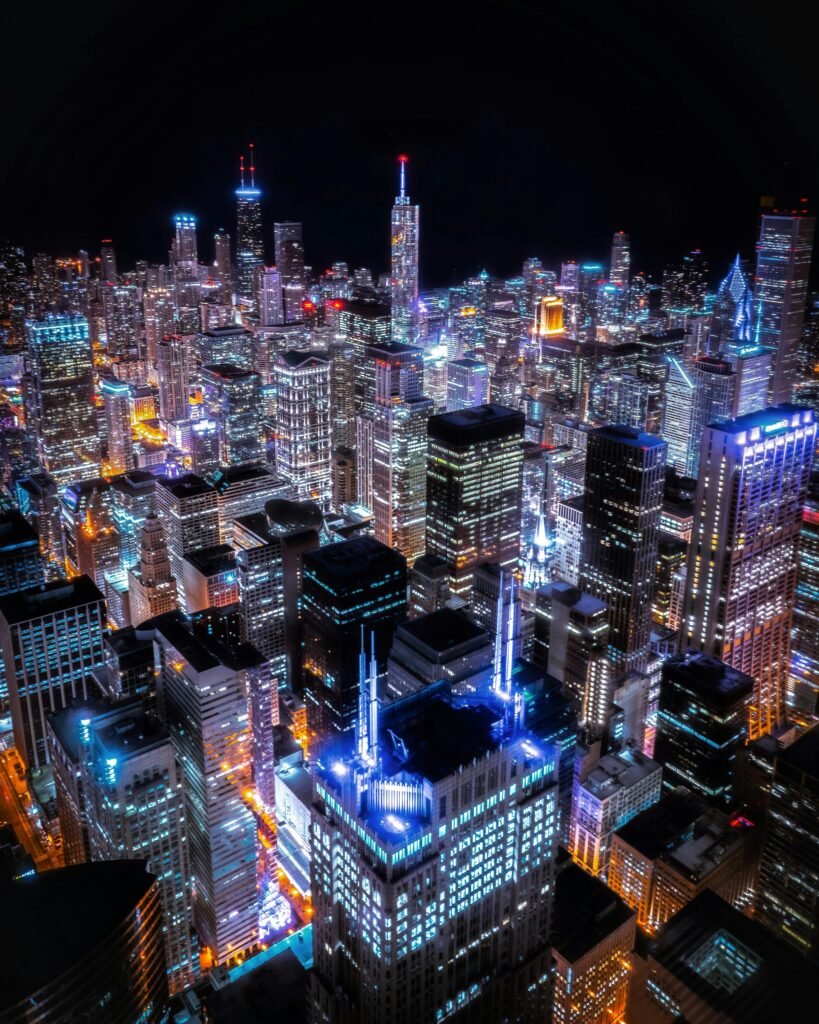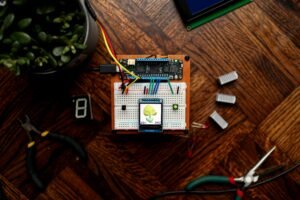The Internet of Things (IoT) has quickly moved from a futuristic idea to something that’s part of our everyday lives. Have you heard about thermostats that automatically adjust the temperature or wearable devices that keep track of your health? The IoT revolution is changing the way we connect with technology and the world around us. With so many devices already linked up, the impact of IoT is huge, affecting everything from industries to our daily routines and even global infrastructure.

In its core, IoT is all about a network of physical devices—from home appliances to industrial equipment—that are equipped with sensors, software, and connectivity to gather and share data. These devices can actually work on their own, making decisions in real-time, they respond to what we want, to the extent of even predicting our needs before we ask.
A great example of how IoT is making a difference is in the uprising smart homes. Devices like refrigerators, light bulbs, and security cameras can be controlled using smartphones or voice assistants like Amazon’s Alexa or Google Assistant and Apple’s SIRI. This offers convenience, security, and help save energy. The idea of smart thermostats can learn of the temperatures you are comfortable with and adjust themselves to save energy when no one is home- Talk about magical!

Smart cities are one of the exciting results of the IoT revolution. As more people move to urban areas, cities are turning to IoT technologies to make their infrastructure and services better. For example, Smart sensors can really make a difference in how traffic is handled in the cities. They can monitor the flow of vehicles and help adjust traffic signals, making it easier for everyone to get where they need to go without long waits. Plus, connected streetlights that adjust their brightness based on the time of day or the presence of pedestrians can save a lot of energy, which is great for sustaining environment and helps keep costs down.

With all the real-time data these devices provide, city planners can tackle issues like waste management, water supply, and public safety much more effectively. This means they can jump on problems right away when they come up, which helps keep the city cleaner, safer, and running more smoothly. It’s all about making urban life better for everyone who lives there.
In the business world, IoT is making strides in industries like manufacturing, agriculture, and logistics. Take factories, for instance—machines equipped with IoT technology can keep an eye on their performance and predict when they need maintenance. This boost productivity and cuts downtime on both human and resource factors.

In Agriculture, smart sensors can be used in farms to check on soil conditions, helping farmers use water more efficiently and grow better crops. In logistics, connected vehicles can track shipments in real-time, making customer demand and supply chains more transparent and improving delivery time.
Healthcare is really changing a lot thanks to IoT. Wearable devices, like fitness trackers and smartwatches, can keep an eye on important things like heart rate, blood pressure, and even how well one sleeps. This would be creepy if you have flashbacks of some figure in white kept visiting your bedside randomly at night; IoT gives both patients and doctors useful information about health conditions, without creeping out or disturbing anyone.
Medical equipment that’s connected through IoT can enhance patient care. It helps reduce the chances of patients having to go back to the hospital and allows for treatments that are more tailored to individual needs. All of this means that people can get better care and stay healthier overall.

Despite these advantages, IoT also presents challenges. Concerns for security and privacy are not far-fetched, as the vast amounts of data generated by these devices makes users vulnerable to cyberattacks. Ensuring robust security protocols and standards is pertinent to prevent unauthorized access and misuse of sensitive information.
In summary, the IoT revolution is really changing our world in amazing ways. It’s sparkling ideas and advancements in different areas, makes life better for everyone. As IoT keeps growing, we’ll see even more devices connected, which will weave this technology deeper into our everyday lives. This transformation will not only change industries but also create smarter, more efficient environments that respond better to what people need.

